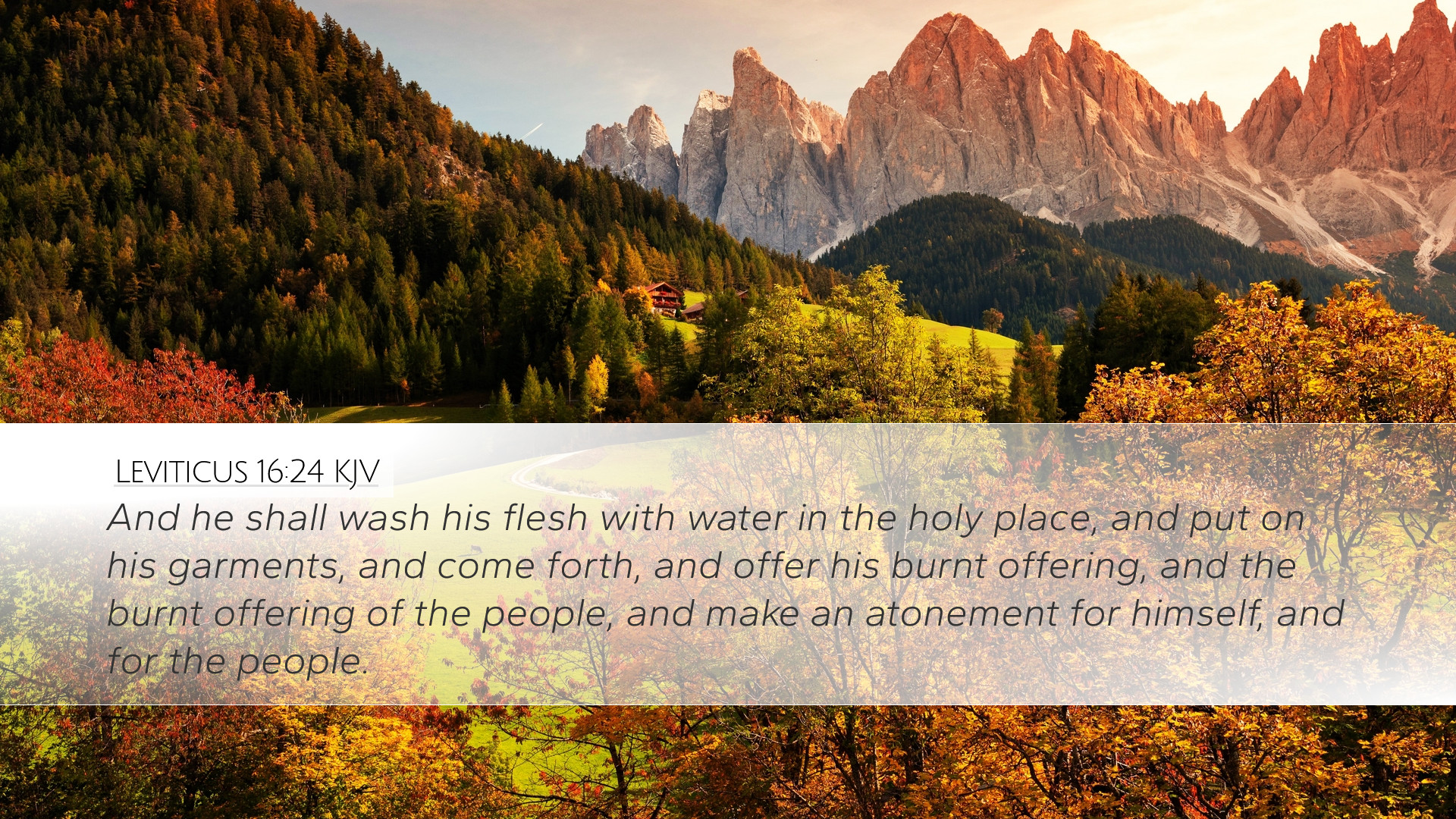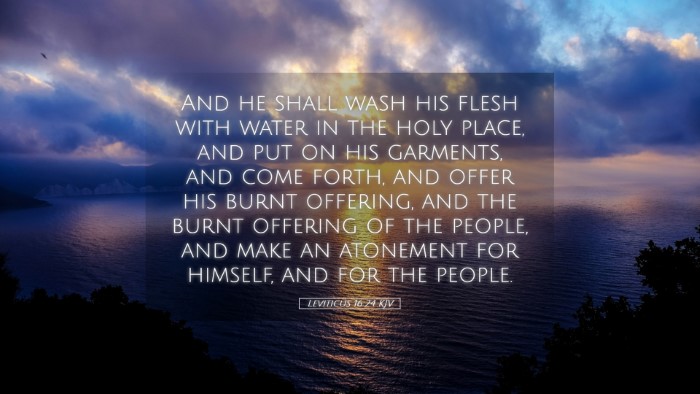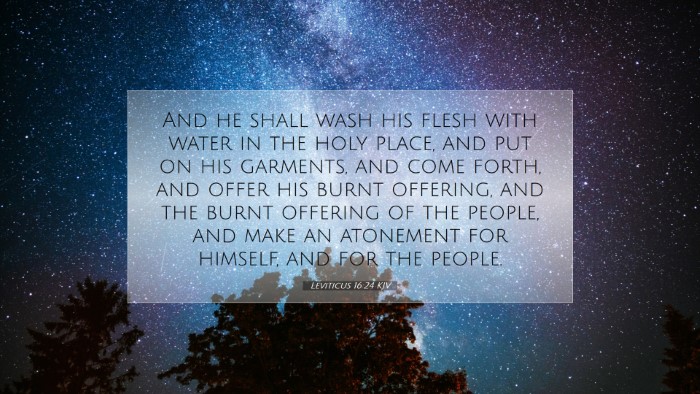Commentary on Leviticus 16:24
Verse Context: Leviticus 16:24 states, "And Aaron shall offer the bullock of the sin offering, which is for himself, and make an atonement for himself, and for his house." This verse forms part of the larger narrative concerning the Day of Atonement (Yom Kippur), a crucial ritual in the ancient Israelite religious system.
Understanding the Atonement Process
The act of atonement is central to the covenant relationship between God and His people. As noted by Matthew Henry, this ritual signifies the need for purity and holiness in approaching God. It emphasizes that not only the people, but also their spiritual leaders must be cleansed from sin.
The Role of the High Priest
Albert Barnes highlights the significance of Aaron’s actions as the High Priest. Aaron's offering of a bullock for himself and his household signifies the beginning of the atonement process. This is not merely a ritual; it is a profound representation of the principle that leaders bear accountability for their actions and for those they lead.
Atonement for Personal and Communal Sin
This verse illustrates two dimensions of atonement: personal and communal. As Adam Clarke remarks, the high priest must first atone for his own sins before he can intercede for the sins of the people. This sequence underscores the seriousness of sin and the incredible responsibility held by religious leaders.
Theological Implications
The Day of Atonement, as depicted in Leviticus 16, bears theological weight in several areas:
- Holiness of God: God's holiness demands a sacrificial system. The bullock symbolizes the seriousness of sin and the cost of redemption.
- Substitutionary Atonement: The bullock's death illustrates the principle of substitution. The people’s sins are symbolically placed upon the sacrifice, implying that sin has grave consequences.
- Role of Intercession: The high priest serves as an intercessor who facilitates the relationship between God and man. Aaron's role foreshadows the ultimate priesthood of Christ.
Aaron's Personal Reflection and Repentance
Matthew Henry emphasizes the necessity of Aaron's reflection. Before he can enable the people to access forgiveness, he must first confront his own shortcomings. This personal repentance is foundational for effective leadership and service.
Spiritual Leadership Today
For pastors and church leaders, this principle remains relevant. Leadership in today’s church requires a deep awareness of personal sinfulness and the constant need for grace. Leaders are called to model repentance and reliance on God’s mercy.
Significance for Believers
The implication of Aaron's actions extends beyond the ceremonial law to affect believers today. As noted by Albert Barnes, each believer is invited to recognize the necessity of atonement and the profound nature of Christ’s sacrifice as the ultimate fulfillment of this Old Testament practice.
Christ as Our High Priest
Hebrews 4:14-16 emphasizes that Christ operates as our great High Priest, allowing access to God through His own sacrifice. The Old Testament practices point toward the complete work of Jesus, who offers not just atonement but transformation.
Conclusion
In conclusion, Leviticus 16:24 serves as a powerful reminder of the serious nature of sin, the necessity of atonement, and the role of spiritual leaders in representing the people before God. The insights provided by Matthew Henry, Albert Barnes, and Adam Clarke illuminate how this ancient ritual continues to have profound implications for contemporary believers. The process of atonement demonstrated in this passage calls for self-examination, repentance, and reliance on the grace provided through Christ, our ultimate High Priest.


